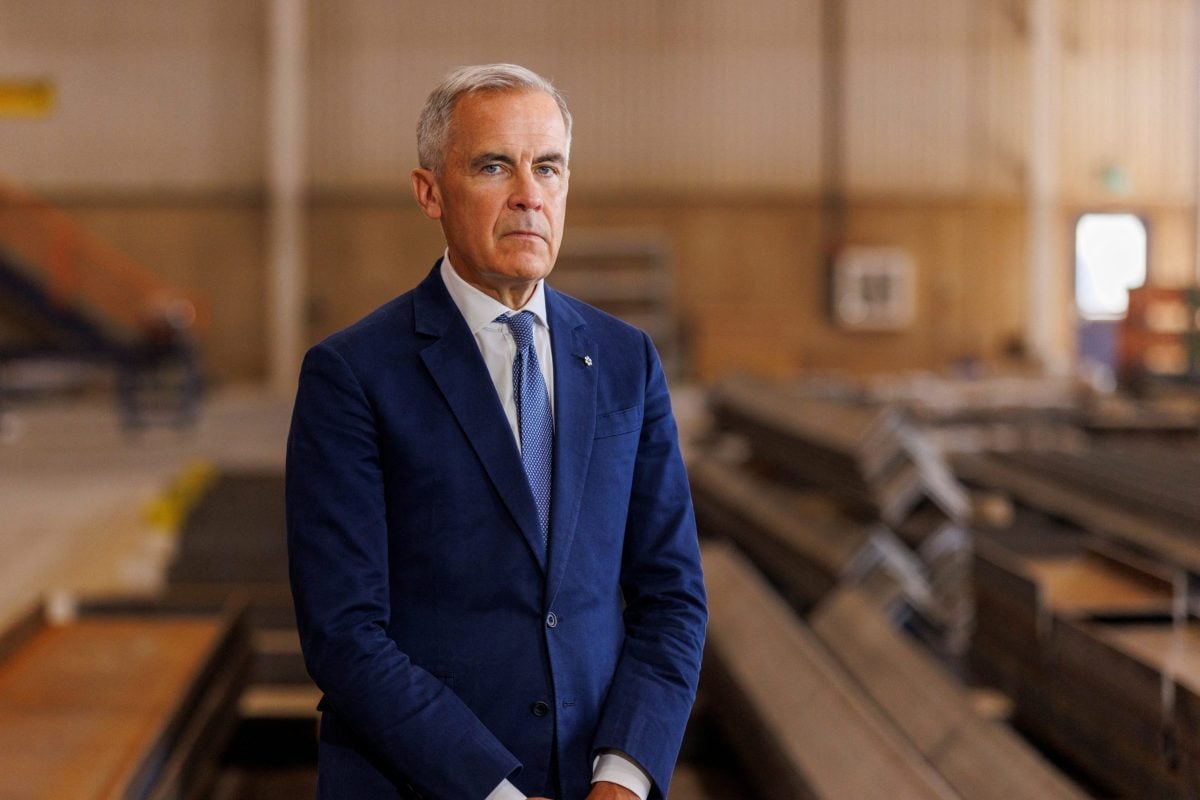Updated, Nov. 21— Quebec MP Marie-Claude Bibeau retains her role as federal minister of agriculture and agri-food in Wednesday’s cabinet shake-up for the Liberals’ minority government.
Bibeau will join her colleagues — including returning Transport Minister Marc Garneau and new Labour Minister Filomena Tassi, a Hamilton MP and former minister for seniors — in having to deal immediately with calls for Parliament to be reconvened early to pass back-to-work legislation for striking rail workers.
Tassi’s office is expected to take the lead role in handling the CN strike. Earlier this week about 3,000 conductors, train workers and yard workers at Canadian National Railway went on strike, affecting bulk freight traffic and movement of western Canadian grain.
Read Also

Carney visits Asia to forge new alliances and reduce U.S. dependence
Canada’s Prime Minister Mark Carney embarks on his first official visit to Asia on Friday in an attempt to deepen trade and security ties at a time when the North American country is struggling to lessen its overwhelming dependence on the U.S. and redefine its foreign policy in pursuit of new markets.
That has prompted calls from industry leaders and some provincial governments for Parliament to reconvene before its scheduled return on Dec. 5.
Ministers were non-committal on the option of back-to-work legislation to end the strike. Tassi told reporters following her swearing-in that she had spoken with both parties and her priority is to ensure they are working hard to come to an agreement.
“We feel there is a solution at hand” and a “light at the end of the tunnel,” Garneau said.
Bibeau is also facing continued calls for business risk management (BRM) and advanced payment programs to be redeveloped. Grain Growers of Canada is continuing to ask the federal government to have coverage of margin losses below 85 per cent be included along with the removal of the reference margin limit.
Industry sources have identified key issues the government should address, including the trade, public and legal pressures on glyphosate, updating the Canada Grain Act and setting up a process to raise funds for varietal development through royalties on farm-saved seed.
Bibeau — who has meetings scheduled next month with her provincial counterparts, where BRM programs are expected to be a priority — said she “looks forward” to those meetings.
“We’re working with the industry, we’re working with our colleagues from the different provinces to try and get the best strategy,” she said. “This is definitely a very high priority for me.”
It’s expected Bibeau will also continue to play a part in expanding international market access for producers and working to end a ban on Canadian canola exports to China.
That ban stems from the arrest of Huawei Technologies executive Meng Wanzhou at the request of the United States, after which Chinese authorities also detained two Canadians, accusing them of espionage.
The two detained Canadians remain a priority for the federal government, and the issue of a canola ban will take a backseat to this, meaning the foreign affairs department and its new minister, Francois-Philippe Champagne, will take the lead on engaging China.
Bibeau has handled the agriculture portfolio since March and is generally spoken of highly by those within industry who work with her.
“We are looking forward to continuing our relationship with Minister Bibeau and the Cabinet as a whole over the coming months and years,” Grain Growers of Canada chair Jeff Nielsen in a release. “We are ready to carry on the important work of ensuring a competitive environment where Canadian agriculture can survive and thrive.”
“Over the past nine months, producers have appreciated (Bibeau’s) availability to hear concerns and work on solutions,” Rick bergmann, chair of the Canadian Pork Council, said in a separate statement. “The collaboration shown by staff under her leadership has been very much appreciated by the pork sector.”
“We look forward to working with Minister Bibeau and discussing the CFA’s key priorities,” Canadian Federation of Agriculture president Mary Robinson said in a separate release.
Among the priorities Robinson listed were the CN rail strike, trade issues, business risk management programming, rural infrastructure funding and funding for climate-change related ag research.
Farmers are also looking for relief from costs associated with carbon pricing, including recognition of practices already taking place to reduce carbon emissions.
That file goes to Vancouver MP Jonathan Wilkinson, the new minister for environment and climate change. Before last month’s election, Wilkinson had served as fisheries minister and, previously, as parliamentary secretary on the environment file.
Wilkinson was considered a natural choice to take over the position from Catherine McKenna, because of his previous work in the sector. Wilkinson also has roots in Saskatchewan, as he worked for former Premier Roy Romanow.
Overall the cabinet favours Ontario and Quebec regionally, but the Liberal minority government is trying to assure voters, particularly in Alberta and Saskatchewan, that they are not blind to regional differences. To that end, Manitoba MP Jim Carr, undergoing treatment for a form of blood cancer, has been named as “special advisor” for the Prairies.
No Liberals were elected in Alberta or Saskatchewan, increasing regional tensions and concerns those provinces would be left without a voice at the cabinet table. Carr was not sworn into cabinet, but Chrystia Freeland will try to calm tensions in her new position as deputy prime minister and minister of intergovernmental affairs.
Among other cabinet posts of interest to farmers, Toronto-area MP Mary Ng becomes minister for international trade; and Peterborough MP Maryam Monsef becomes minister for rural economic development.
— D.C. Fraser reports for Glacier FarmMedia from Ottawa. Includes files from Glacier FarmMedia Network staff.











